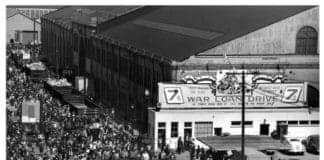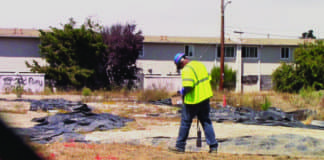Tags Polycyclic aromatic hydrocarbons
Tag: polycyclic aromatic hydrocarbons
Death and courage at the Hunters Point Shipyard
Our story begins on any weekday morning in the mid 1940s, when thousands of men, migrants from the American South to “Frisco,” converged upon the gates of the Hunters Point Naval Shipyard on their way to work. To do their jobs building and repairing ships for the biggest employer in the San Francisco Bay Area during the war time economic boom. By 1908, the San Francisco Drydock, operating at the shipyard, had become “the world’s greatest shipping yard.”
Consultant hired to help the Treasure Island Development Authority consortium dodge...
After 18 years subjecting San Franciscans who were homeless, poor and mostly of color to massive toxic hazards and environmental racism on radiation and chemically contaminated Treasure Island, the Treasure Island Development Authority (TIDA)’s redevelopment consortium – Five Point, Stockbridge Capital Group, Lennar, Wilson-Meany, John Stewart Co. and other financial interests – seem to be attempting to induce tenants to leave the island while forestalling possible legal roadblocks.
Site 12, Treasure Island’s toxic bullets: Someone’s about to get hit!
Think of Treasure Island as an iridescent green glowing ghost ship whose prow divides the blue waves as it navigates San Francisco Bay waters gliding northwest under the Golden Gate Bridge. On the tidy front lawn of your market rate or low income Site 12 rental brought to you courtesy of The John Stewart Co., it is as if you are standing at the bow of the radioactive vessel as it carries its toxic contents ever forward into a stunning red-gold sunset.
POWER’s campaign to clean up dirty developers
In its comments on the Candlestick Point-Hunters Point Shipyard Environmental Impact Report, POWER focused on the carcinogens and radiological contamination at the Shipyard; the dangers of liquefaction; climate change and sea level rise; transportation impacts from the proposed development; the connection of the development to the existing community; and the preservation of historic Ohlone sites.

 Store
Store






